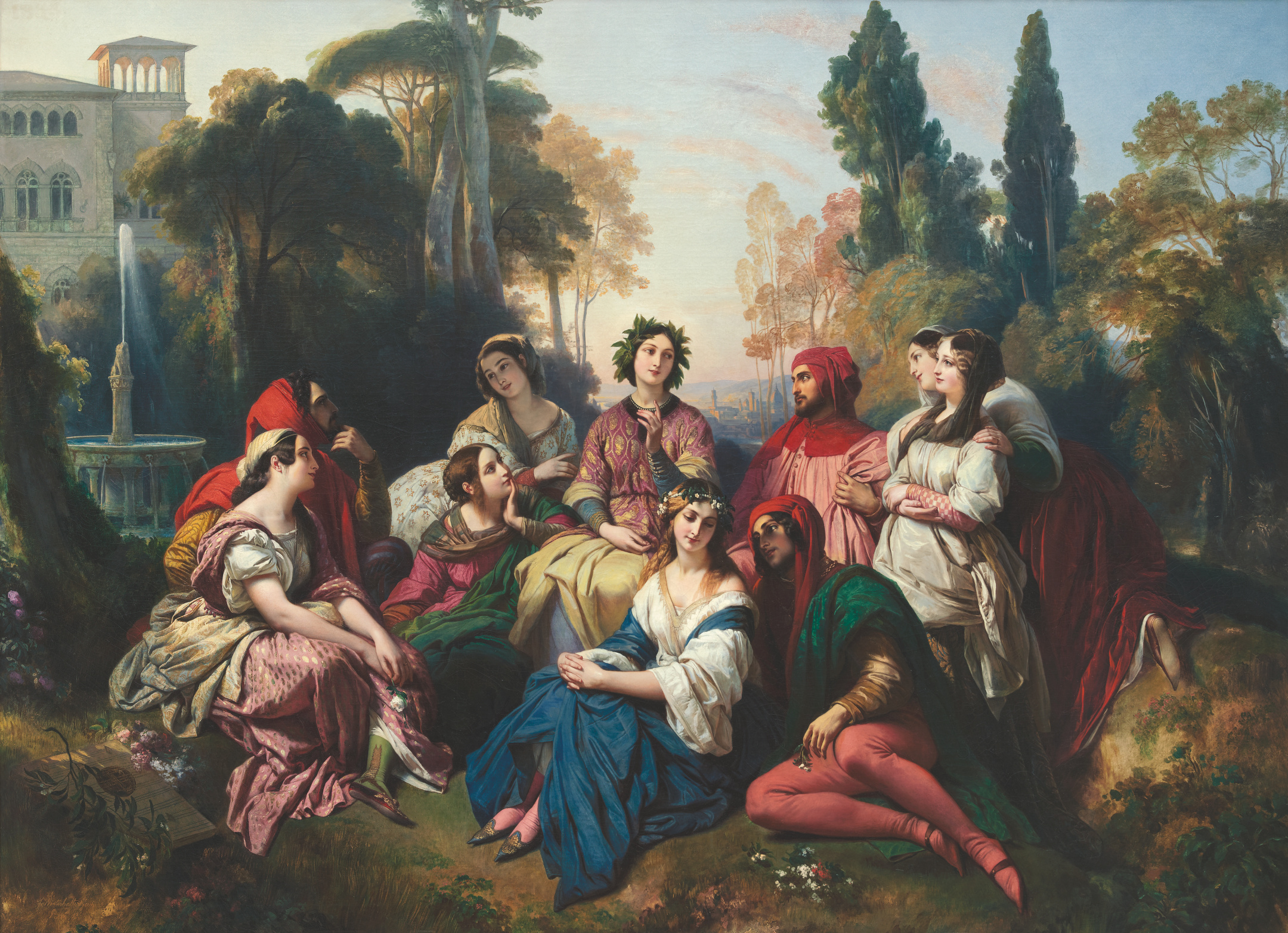Xavier de Maistre, A Journey round my Room, 1794
Geraldine Brooks, Year of Wonders, 2001
Giovanni Boccaccio, The Decameron, c. 1350
 |
| Plague Covers |
Quarantine
Origin: mid 17th Century; from Italian quarantina 'forty days', from quaranta 'forty'
If there's one thing, Dear Reader, we all learned this past year, it is the definition of the word Quarantine. In varying degrees, I expect we all had a chance to find out what forty days at home might even feel like, and probably all came to the conclusion that whoever put the quaranta into it was either wildly optimistic or just deluded. And, for some, confinement may have been a better word for what ensued.
Anyhoo, in the expectation that no time could have been riper, Your Correspondent seized the opportunity to join hands across the centuries with a couple of writers who had their own take on Staying In for a bit, and one modern author who could not have been more prescient in her choice of subject. And appreciating you may be over even reading about these times, I shall merely briefly survey how they fared:
 |
| Our traveller Xavier taking in the sights |
42 Days: Xavier de Maistre was a a young soldier based in Turin in 1790 when he was confined for forty-two days under house arrest for duelling. He parodies his time as a travelogue, and in
A Journey round my Room, he luxuriates in exploring his thirty-six-pace perimeter bedsit, admiring and discoursing on its fixtures, furnishings and bibelots, digressing and pontificating as though on a Grand Tour.
Verdict: He emerges sane and refreshed at the end of his six-weeks, enabled, of course, by the unwavering companionship of his dog and reliability of his loyal valet who could interface with the outside world for him, with a book under his belt and wholeheartedly recommending this style of Voyage for its frugality and comfort for those with limited means or mobility.
 |
| Eyam in happier times in the early C19th |
425 Days: Geraldine Brooks, Year of Wonders, is a positively marvellous fictional account of the true story of the small village of Eyam that self-quarantined for a full year when Bubonic Plague came to them for around fourteen months in 1665-6. The story is seen through the eyes of a housemaid who finds herself rising to the occasion and through necessity self-training as a nurse and herbalist as those around sicken and die. Self-sacrifice, selfishness, superstition and survival are explored in this extraordinary tale.
Verdict: Our fictional heroine, one of the survivors, takes on all the shocks and challenges this disaster throws at her and finds that the year, after all, is for her one of wonder. And the real-life village taught doctors valuable lessons in enforced quarantine zones and contamination minimisation, also wonderful. And a 2001 novel about the strange ills of the past that became suddenly very topical again - how could Ms. Brooks have known it!
 |
Such a genteel escape from the Black Death
Franz Xaver Winterhalter, The Decameron, 1837 |
14 Days: Ten affluent young Florentines flee to nearby Fiesole for fourteen days to escape the Bubonic Plague of 1348 and amuse themselves by each telling a story based on a particular theme every weeknight. The 100 stories Giovanni Boccaccio cobbles together are indeed sourced from throughout the preceding ages and many lands, but brought a bit up-to-date (viz. C14th-style) with some local flavour and were probably recognisable to contemporary readers. They are in turns bawdy, lewd, pious, irreverent, violent and a source of great delight and admiration to the ten storytellers. Then, amused and uplifted, they all go back home. [Nota bene: Extensive show-notes accompany this Norton Critical Edition]
Verdict: Do we care? If it wasn't for the entourage of servants that rolled out the red carpet every day for these ridiculous, self-indulgent and pompous youths and they had to fend for themselves for the duration - it's every man for himself when the plague strikes the Middle Ages - they'd probably have perished.
I do realise this is fiction, obv. and I'm sure Signore Boccaccio probably wrote this as a bit of escapism from the awfulness of living though the Black Death, but did he expect that centuries later this book is still lauded as a masterpiece?? Frankly, Chaucer would have probably come up with enough inspiration for his Canterbury Tales without the leg-up from this nonsense. Pity the poor students who have to critique this. And that careers have been made as Decameron-experts astonishes me. The show notes are just as self-indulgent. Reading this, I took one for the team*.
Conclusion: Does quarantine accurately live up to what is promised on the box? No. Xavier came closest with 42 days, but it was house arrest not escape from pestilence that confined him thus. Unless 40 days is re-instituted as the prescription, Pipistrello thinks it's time for a name change.
* Why I'm all phooey with The Decameron will come as a future post!
Image credits: 1: Flying With Hands; 2: via Internet Archive; 3, 4: Wikimedia Commons
[First Published on Flying With Hands, May 2021]




